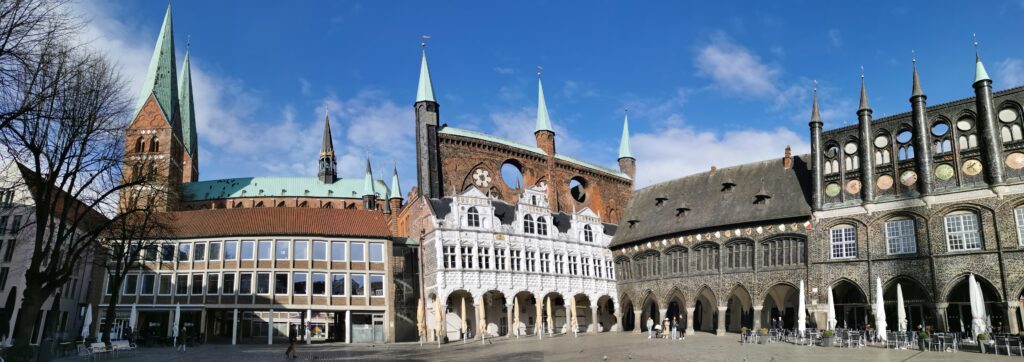LÜBECK REDEFINES ITS TOURISM VISION FOR 2030
Lübeck in Schlewig-Holstein (Northern Germany), with its twin seaside resort city Travemünde, has recently unveiled their strategic vision for a green, sustainable and inclusive tourism developement until year 2030. The aim is to find the right balance between locals and visitors, between tourism development and sustainability.
Lübeck is one of Northern Germany’s tourist gems. The old Hanseatic town has UNESCO World Heritage status thanks to its well preserved (or reconstructed) ancient town which has preserved its typical lifestyle from ancient times next to a more contemporary urban development. The Tourism Development Concept Lübeck and Travemünde 2030 -TEK30- is a sustainability offensive for both cities. It is a joint initiative of Lübeck Management e.V., -the hotels and gastronomy association DeHoGa Lübeck as well as Lübeck und Travemünde Marketing GmbH agency. All together they redefine ways of blending local life with tourism over the two next decades.
The aim is that in 2030, guests will experience Lübeck and Travemünde as two climate-friendly travel destinations, each with its own profile: Lübeck is the city of culture and Travemünde the seaside resort on the Baltic Sea with a strong respect on natural and local resources.
The guidelines of the TEK 2030 concretise important aspects of the tourism vision, particularly sustainable tourism development in detail.

Economic, value-adding, appreciative vision and strategy
TEK30 goal is not only to bring more guests to Lübeck and Travemünde (quantity), but to achieve a higher added value per guest (quality). It will need also to soften seasonality and increase occupancy. Growth in demand could potentially come from segments such as conference, congress and event tourism (MICE) or short breaks in the off-season. Another important issue is an efficient use of marketing resources in relation with the brand strategy. It means focusing on guests who fit both destinations and offers and who offer Lübeck and Travemünde suppliers prospects of higher added value. Transparency in all implemented strategies will be of extreme importance to achieve these goals.
Ecological, sustainable and fairness strategy
TEK30 is reducing tourism’s impact on the environment and building on the current successes achieved for Lübeck and Travemünde. Priority is given to the expansion of sustainable mobility for guests (climate friendliness), the sensitive design of events (particularly in the MICE sector), the implementation of “green days” as well as the strengthening of Lübeck as a fair trade city for tourism, environmentally friendly business management and culture. Campaigns would target guests to highlight the benefit of consuming regional and fair. The project foresees to strengthen the experience of water and nature through nature-friendly development in surrounding areas and the expansion of infrastructure within the existing urban structure as well as the preservation of those identity-forming elements while developing tourism products.

Social, worth living and accepted
In tourism development, TEK30 focuses on balancing the needs between citizens, entrepreneurs, employees versus guests. The plan wants to avoid emerging undesirable developments such as overtourism, housing scarcity due to apartment sharing phenomenons, conflicts caused by too many visitors in certain districts and the challenge between transports and tourists.
Positive tourism awareness of citizens is important as the travel sector is central to economic development and citizens’ prosperity. factor and is based on a broad local acceptance. As citizens should benefit from the positive effects of tourism through improved quality of life, tourism development must be built on a local broad acceptance.
By identifying values, themes and differentiation that makes Lübeck and Travemünde unique and limiting the scope of marketing actions to specific groups of travellers, TEK30 estimates to increase the value of both brands Lübeck and Travemünde (Baltic Sea brand strategy) and create a value-oriented sustainable tourism strategy which could make the difference with other destinations across Europe.
